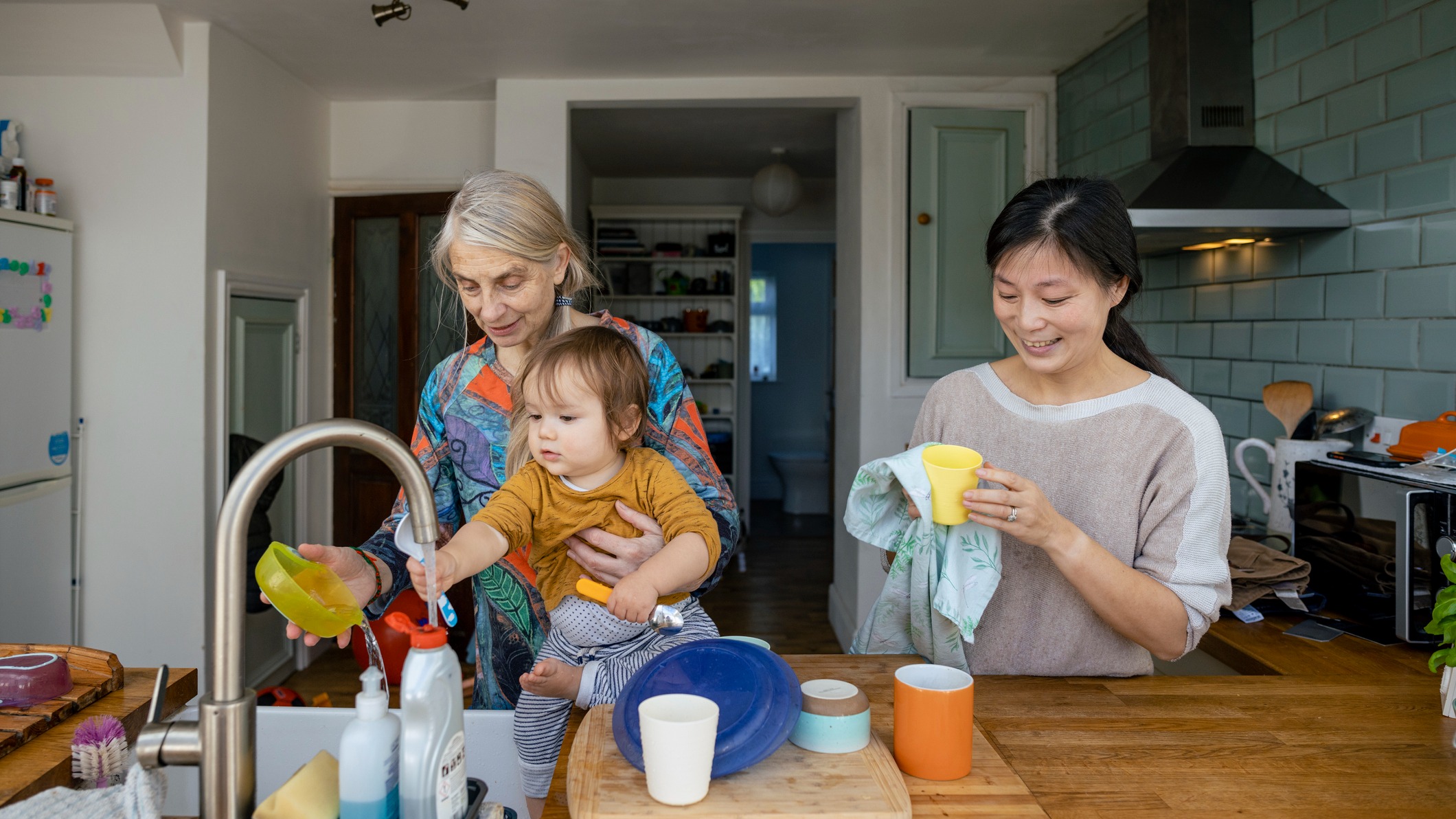
The statistics relating to the sandwich generation don’t lie, but they are also too objective and scientific to tell you the whole story. To really understand how it feels to be a carer to both children and parents, well, you’d need to actually live it. But the next best thing is to listen to people’s stories — how they feel day to day, what they have lost and gained from being a carer, and how society has treated them for it.
I spoke with Eliza, Linda, and Mitchell, three sandwich carers from each corner of the country, about how caring has impacted the relationships in their life. From romance to work relationships, they demonstrate how being the glue that holds a family together can really change the way people look at you.
Dating

Romantic relationships are often the first area to suffer when one gains a new responsibility. When it comes to caring, you can either find someone who you can share this responsibility with, or find it very difficult to find the time to meet anyone at all. Not to mention, not everyone who wants a relationship wants to be handed a whole family on the spot.
Eliza, a 24-year-old carer of her elderly parents and infant son, chatted to me about her difficulties in the serious-dater scene.
“Dating is such a mixed bag for me,” Eliza told LittleThings. “More casual meetups are usually fine, but people generally don't want to be handed the responsibility of kids, nevermind ill parents-in-law. I don't blame them, but it's painful to make a connection with someone who you know won't be there in a few months.”
No one is in the wrong for their views here; someone who wants to build a life with someone alongside their caring duties, and someone who doesn’t want to become a carer in order to keep that relationship. That’s what makes it so heartbreaking. At least if someone is an the bad person in the situation, it would be easier to part ways. Luckily, there’s always a chance that you’ll meet someone who wants to, and can, take that journey with you.
“My father tells me all the time when The One comes along, that she’ll accept the whole package that is my family, but it's the waiting that upsets me most. It's thinking the woman you've been talking to every day and night for months wants to marry you, but won't because she can't handle her life changing overnight like that.”
The sad fact is, many people in this situation have to play the waiting game, which isn’t fair when their carefree friends don’t have to work so hard to find the love of their life. That being said, it may not be a quick journey, Eliza, but we’re with your dad here, you’ll find The One someday.
Work

We don’t tend to think of work relationships as important as friendships and romance, but work relationships can make or break our career goals. Not to mention, these are the people you spend the 9 to 5 with, that’s a lot of time in their company, so no one would want that time to be spent negatively.
We spoke to Linda, a 35-year-old baker from Michigan, about how being a sandwich carer has affected her work relationships. As a carer for her 3-year-old daughter, and 74-year-old father, Linda has found keeping work and getting good references difficult.
“Back when I was working part-time at a chain bakery, I had to take so much time off that I was only really in the kitchen for one to two hours at a time," she told LittleThings. "I’d start a batch of pastries only to ask a coworker to finish them for me. Everyone was so kind-hearted about it all, aside from management, who I could sense getting increasingly irritated at my absences. My contract was a little vague so eventually I was let go. It was a nightmare.”
The working schedule society relies on today is an archaic and sexist holdover from the 20th century, designed for the nuclear family. The man heads to work for half the day every day of the week, and the wife stays at home with the children to cook and clean. But now that women are also working, there’s no one at home full time to cook, clean, and look after the children. So now, couples are killing themselves working for most of the week, only to come home to work even harder. So for those who literally can’t work this much, where is the money going to come from?
“Eventually a friend recommended I go freelance, baking out of my own home and having clients pick up their own orders. It makes taking care of my family so much easier, though it isn't always steady pay. Our bank statements wouldn't agree with this but personally the switch to freelance has been a blessing for my mental health, and my dad and daughter.”
Unfortunately, our relationship with money is similar to our relationships with people. You need to take care of your finances like a child, or they won’t flourish. But if you can find a balance between work and happiness, most people will choose for happiness to flourish just a little more.
Friendships

Parenthood positivity has been on the rise for decades now, showing that mothers can still create art and date even if they have a child, and that fathers can still go to The Big Game with their bros, with a beer in their hand every weekend. Despite the fact that this positivity is great, it’s just not feasible for everyone, especially those taking care of elderly parents as well. Particularly for Mitchell, a 42-year-old dad of two, caring for his 66-year-old mother with dementia.
“I can’t stand those fluffy news stories of the people who can ‘do it all’ because most of the time I spiral real easily balancing it all,” Mitchell told LittleThings. “Happy for them but man, half of my life is really suffering from being the only one to take care of my folks and babies. I used to be such a guys guy, never missing a baseball game, always the last one on the dance floor, now my friends just look at me like I’m a buzzkill whenever I say I have to be back by 9:30, but of course I’m flighty, I’ve got a family to look out for.”
As we ourselves age, it can feel scary and extremely boring to miss out on fun nights out, because hey, one day we won’t be able to go on them at all. So it’s understandable that we may try and push our friends to come out with us. But there’s a huge difference between trying to make room for them, to make compromises, and judging our friends for “not being fun anymore,” just because they have responsibilities.
“The guys are great people otherwise, but I think they think I’m a bit of a failure cause they’re family men too and they don’t have the same troubles I’ve got. They don’t realize it’s cause they have kindergarten kids, and I’ve got toddlers and my parents to look after, it’s not the same. I’m basically doing double the work and all they can say is ‘We missed you at the bar on Saturday, you gotta step up your game,” as if I’m deliberately being antisocial. So I miss out on stuff and get chewed out over it. The sad thing is that I’d pick my family over them any day, but don’t I still deserve to be a part of the group?”
You do, Mitchell, you do. We need to stop thinking of friendships as transactional, where one deserves to be a part of the group so long as they are punctual to social gatherings. The internet has given us twice as many ways to be there for someone without even being in the same room as them. And it shouldn’t always be up to the person who misses out to make back that social time. Care-free folk can just as easily visit their carer friends while at home, spending a nice day watching some movies or having dinner with the family, then go back to their own lives. It may not sound glamorous, but if it’s truly your friend you miss, then you’ll make the effort.







